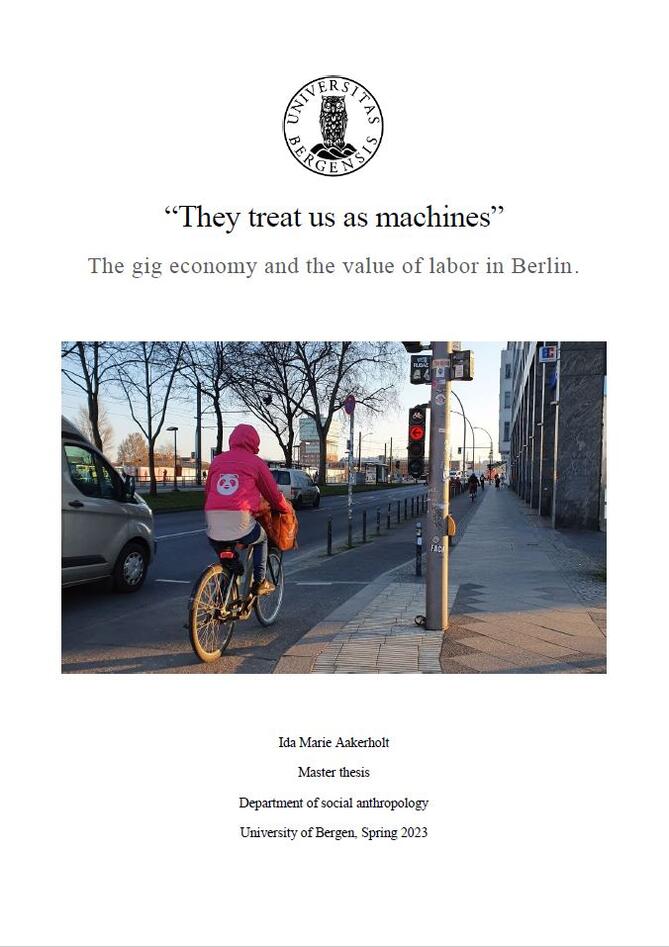“They treat us as machines”: The gig economy and the value of labor in Berlin
Hovedinnhold
Master's thesis submitted at the Department of Social Anthropology, spring 2023.
By: Ida Marie Aakerholt
Supervisor: Professor Bjørn Enge Bertelsen
In the last few years, the so-called gig economy and what I will argue to be its transformed form of labor, has become quite a popular platform for users, i.e. both clients and consumers, as well as independent workers. Its form of labor, often called “gig work,” is integral to a platform where workers, in theory, can take control over their own lives. This commonly marketed idea of individual control is one of the motivating aspects of why one should participate in this new economic and labor structure, focusing on liberty and independence. With these profound and transformational shifts within the field of labor and economy in mind, this thesis delves into how so-called gig work alters or wholly transforms common and anthropological understandings of work/labor. Based on fieldwork among gig workers in Berlin, this thesis asks: What does work and labor entail in this new configuration? What do shifts in economic value do with the value of the human?
To answer these questions, the thesis maps and analyses five inter-connecting fields which are all related to human value and the value of work. Firstly, by looking at the gig economy and the labor within this, I am arguing for humans having become machines. Following this analysis of machinic subjectification, the next chapter will follow this thread by expanding to look at the urban society in Berlin as a whole and look into how the gig economy crucially transform the urban order. In this chapter, the thesis will particularly explore the possibilities that the novel configurations of urban space and time inherent to this form of economy, point towards something like a ghost town. Moving further into the value of labor and humans, I will present several cases of folklorification and dehumanization to show how ethnicity, gender, and identity are instrumentally treated within the gig economy. The two last chapters will exemplify and analyze forms of labor resistance against the companies – both in the form of everyday forms of resistance, as well as establishment of worker’s councils and activist work. Drawing on these five fields, the concluding chapter where the thesis will portray how the gig economy might further develop in the future.
Overall, this thesis will reflect on how the gig economy influences the daily lives of the people involved. I want to gather the perspectives of people who work on these platforms, the participants, as well as their users to understand how it affects their lives. All this, with the view of understanding the current phase of capitalist transformation exemplified by the gig economy.
